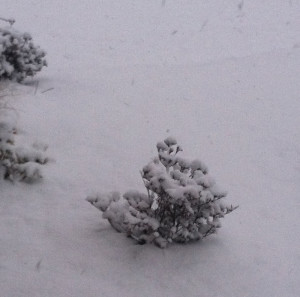 Last week I was on the east coast. Fighting the after affects of the flu I never was truly warm for six consecutive days.
Last week I was on the east coast. Fighting the after affects of the flu I never was truly warm for six consecutive days.
 Snow storms rolling in from the east and south kept me in a gray, gloomy world. Residents and businesses were planning, adapting, and changing their day-to-day lives because of the weather.
Snow storms rolling in from the east and south kept me in a gray, gloomy world. Residents and businesses were planning, adapting, and changing their day-to-day lives because of the weather.
But Friday afternoon I just escaped being imprisoned at the airport as flight delays began. Luckily my scheduled visit for Friday afternoon was cancelled by the client and I grabbed an earlier flight out. It was a just-in-time flight, as my originally schedule later flight was to be delayed for hours and I would not have been able to get home as planned.
Back home, the weather was wonderful, with temperatures in the 70’s (F). Nothing better to fix what ails you than to go for a hike.
And nothing cheers me up like hiking in Palm Oases, so that is what I did.
The only native palm in the Western US is the Washington filifera, also known as the California Fan Palm. These palms can grow up to 80+ feet, but require continuous access to underground water. This native palm is primarily found in the Lower Colorado Desert, which is luckily where I live.
Above: Full skirts are created by the dead palm fronds.
Above: A few years ago a fire burned through this entire palm grove, but most of the trees survived. The gray-white coloring on the ground are ash remnants.
Above: Palms need a continuous source of underground water to survive. A Palm Oasis does not mean one will find water. This grove has a substantial spring that provides ground water to the resident animals.
Above: Even in the heat of summer, Palm Oasis provide a cool refuge from the heat.











